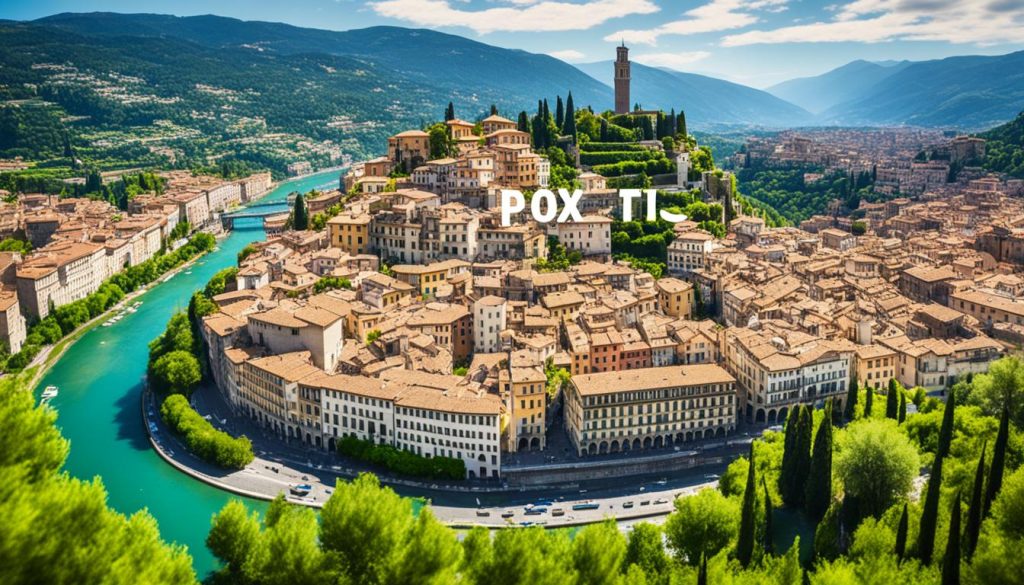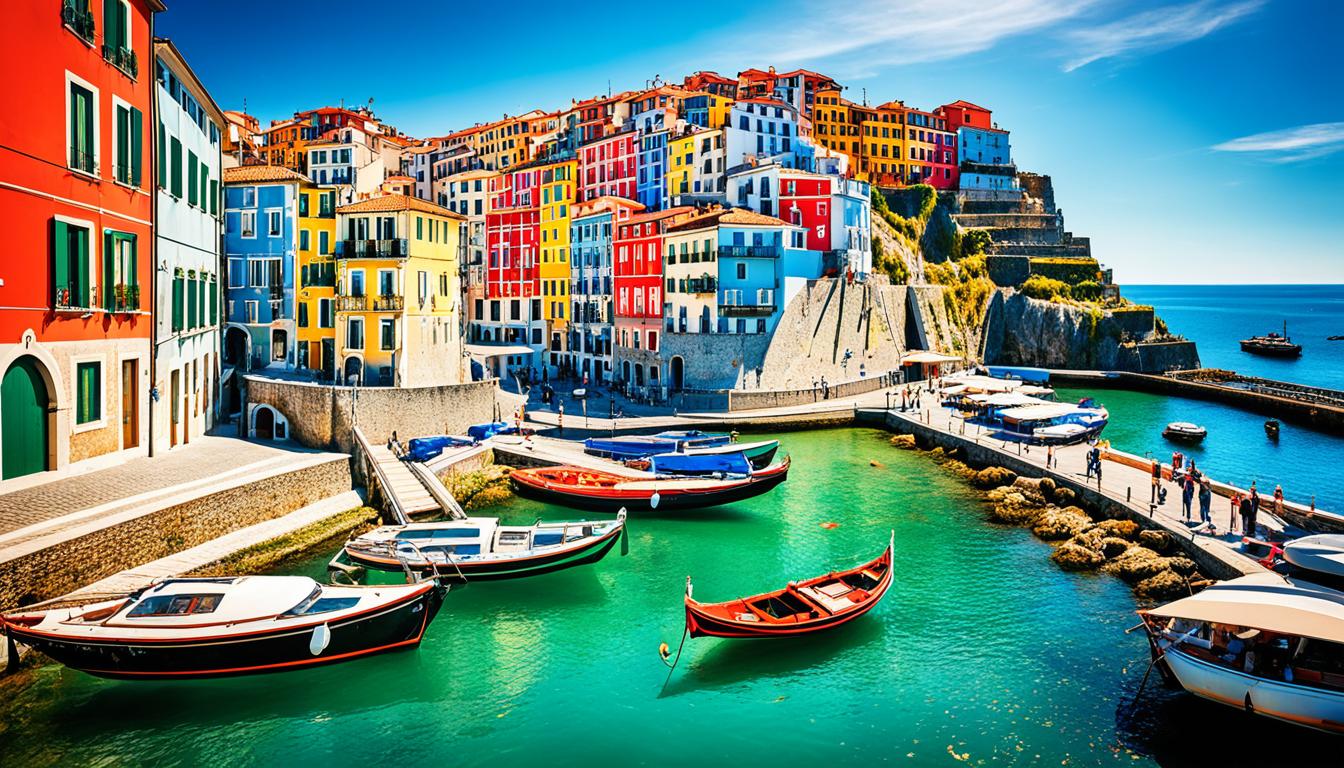Looking to expand or start a business in Europe? It’s key to know the differences in setting up a company in Italy and Portugal. This article gives a detailed look at the legal and financial sides of starting a business in both countries. We’ll cover legal structures, taxes, costs, and how easy it is to start a business. This info is great for UK entrepreneurs and businesses looking to grow.
By looking at these areas, you can make a choice that fits your business goals.
Key Takeaways
- Italy and Portugal offer distinct advantages and challenges for company formation.
- Legal structures differ significantly, impacting liability and taxation.
- The regulatory environment plays a crucial role in the ease of doing business.
- Costs for company registration vary between the two countries.
- Understanding consumer demographics can enhance market entry strategies.
- Timelines for company registration are an important factor for business planning.
Overview of Company Formation in Italy
Starting a company in Italy means following certain steps and laws. It’s vital for those starting a business to know these rules. This knowledge helps them do well in the Italian market and follow the law.
First, you need to decide on a legal structure for your business. Italy has options like limited liability companies (LLCs) and sole proprietorships. Each type has different rules and affects things like how much you’re liable and your tax duties.
To register your company, you’ll need to gather various documents and proof of your address. You must also get an Italian tax code for all the people involved in the company. A notary public usually helps make your company official, making sure you follow the law.
It’s also key to understand Italy’s economy. Italy is a big player in the European Union. It offers many chances for growth, especially in fashion, cars, and tech. To succeed, you need to know about the local culture and what customers like.
In short, those wanting to start a business in Italy should really get to know the process well. This knowledge makes running a business there easier and keeps you in line with the law.
Overview of Company Formation in Portugal
Starting a company in Portugal is straightforward and supportive for both local and foreign entrepreneurs. First, you need to pick a business type, like a Unipersonal Limited Liability Company. Then, gather the right documents to follow the business laws. This makes starting up in Portugal easier.
Having a company in Portugal comes with big benefits. You get to enjoy a good tax setup and incentives for foreign investors. The government makes it easier to set up a company, which means faster setup times than in many other European countries.
Portugal is well-connected and strategically placed in Europe. Companies here can easily reach out to bigger markets, helping them grow. Foreign investors also find a clear set of business rules that encourage fair competition and support entrepreneurship.
Overall, setting up a company in Portugal is a smart move for those wanting to start a business. It opens up great opportunities in a strong economy.
Company Formation Comparison between Italy and Portugal
Starting a company in Italy and Portugal shows us two different paths. These paths are shaped by laws, market conditions, and how things are done. It’s important for anyone thinking of starting a business to look at these differences.
In Italy, setting up a company can take a few weeks. This depends on the region and the documents needed. Portugal makes things easier with online registrations. This can help businesses start faster.
Dealing with official paperwork is another big difference. Italy has a lot of rules and paperwork, making it harder to start a company. Portugal has made things easier with new rules. This makes it more welcoming for new businesses.
Looking at the market is also key. Italy has a big market with strong sectors like manufacturing and fashion. Portugal is smaller but has great opportunities in technology and tourism for entrepreneurs.
| Factor | Italy | Portugal |
|---|---|---|
| Incorporation Time | Weeks | Days |
| Bureaucratic Hurdles | High | Moderate |
| Market Size | Large | Smaller |
| Sector Opportunities | Manufacturing, Fashion | Technology, Tourism |
This comparison helps entrepreneurs choose where to start their business. It lets them match their goals with what each country offers.
Legal Structures Available in Italy

For entrepreneurs in Italy, knowing the legal structures is key. Each structure has its own benefits and duties. This affects the choice based on the business needs. The main types are the Limited Liability Company (LLC) and Sole Proprietorship.
Limited Liability Company (LLC)
The LLC is a top choice for many in Italy. It shields owners’ personal assets from business debts. Starting an LLC involves a detailed process. This includes writing the company’s statute and registering it with the Companies Register. You’ll need:
- At least €1 for share capital.
- Just one director is needed.
- A registered office in Italy must be found.
LLCs in Italy bring many benefits. They boost trust with suppliers and clients, make funding easier, and offer tax perks. Yet, there are yearly duties to follow. These include making accounts and filing tax returns.
Sole Proprietorships
Sole Proprietorships are popular with freelancers and solo entrepreneurs in Italy. They’re easy to start, needing little paperwork and registration. Owners make all the decisions but risk everything personally if the business owes money. Key points about Sole Proprietorships are:
- Easy setup at the local Chamber of Commerce.
- Taxes are based on personal income tax rates.
- No need for initial capital.
By looking at LLCs and Sole Proprietorships, entrepreneurs can choose wisely. They can match their business goals and how much risk they can take.
Legal Structures Available in Portugal
For those looking to start a business in Portugal, it’s key to know the legal options. The Unipersonal Limited Liability Company is a great choice for solo entrepreneurs. It makes owning a business easy while keeping your personal assets safe. It also makes running your business simpler.
Unipersonal Limited Liability Companies
The Unipersonal LLC is a good option for single-person businesses in Portugal. It limits your personal risk, protecting your assets. To set one up, you need to:
- Choose a unique company name.
- Prepare the necessary documents, like your ID and address proof.
- Register your company with the Companies Registrar.
- Get a tax identification number.
- Open a business bank account.
Each step has rules to follow to make sure you’re doing things right in Portugal. Entrepreneurs with a Unipersonal LLC also need to know about taxes and rules they must follow.
Individual Business Owners
For those who want to be their own boss, owning a business on your own is another choice. It lets you work as a sole trader, which means easier taxes and less paperwork. The main points are:
- It’s easy to start and manage.
- All profits are yours.
- You don’t need to do much accounting.
This option gives you freedom and control, but you must be careful. Your personal assets could be at risk if your business has debts or legal problems.
| Feature | Unipersonal LLC | Individual Business Ownership |
|---|---|---|
| Liability | Limited personal liability | Unlimited personal liability |
| Registration | More complex | Simpler |
| Profit Distribution | Subject to corporate tax | Owner retains all profits |
| Ongoing Requirements | Annual reports, tax filings | Minimal record-keeping |
Looking at the legal options in Portugal helps entrepreneurs make smart choices about owning a business. With the right choice, you can do well in the Portuguese market.
Regulatory Environment in Italy
The regulatory environment in Italy is key for businesses, both local and foreign. It’s vital for companies to follow the law to avoid big fines. Knowing Italy’s complex rules helps businesses stay legal and run smoothly.
Many government bodies make sure rules are followed in Italy. The Ministry of Economic Development promotes fair business and looks after consumer rights. The Italian Revenue Agency checks on tax matters, making sure companies pay their fair share. There are also bodies for specific industries like finance, healthcare, and food safety.
Foreign investors may find it hard to start a business in Italy due to red tape and paperwork. Knowing the local rules is crucial to get past these hurdles. Getting help from local experts or lawyers can make things easier.
Following Italy’s business laws boosts a company’s trustworthiness and efficiency. It helps companies stay on the right side of the law and do well in a tough market.
| Regulatory Authority | Main Responsibilities |
|---|---|
| Ministry of Economic Development | Promotes fair business practices and protects consumer rights |
| Italian Revenue Agency | Ensures tax compliance and oversees fiscal obligations |
| Industry Regulatory Bodies | Monitors compliance with industry-specific guidelines |
Regulatory Environment in Portugal
The regulatory environment in Portugal is key for setting up and running a business. Many authorities make sure businesses follow the law and international standards. It’s vital for entrepreneurs to know about these groups if they want to do business in Portugal.
Key Regulatory Bodies
There are several important groups that watch over businesses in Portugal. These include:
- Instituto dos Registos e do Notariado (IRN): They handle the registration of companies and legal entities.
- Autoridade Tributária e Aduaneira (AT): They manage tax matters and financial duties for businesses.
- Agência Portuguesa do Ambiente (APA): They enforce environmental laws across various sectors.
Business Licensing Requirements
Getting a business license in Portugal means going through several steps. The process changes depending on the industry. Here are some main points about business licensing:
- Industry-Specific Licenses: Some jobs, like in healthcare and finance, need extra permits and approvals.
- Standard Registration: Most companies must register officially with the IRN, providing the right documents and following local laws.
- Operational Compliance: Companies must show they meet health, safety, and environmental rules set by the authorities.
Taxation in Italy

Italy’s tax system has many parts that affect corporate strategies. It’s key for businesses to understand Italy’s taxes to work well and deal with the tax challenges. The main areas to know are corporate tax rates and the VAT system. These affect profits and how businesses operate.
Corporate Tax Rates
Italy has different corporate tax rates for various businesses and earnings. The basic corporate tax rate is 24%. But, smaller companies with profits under €150,000 can pay just 15%. This helps start-ups and small businesses grow.
There are also tax breaks for research and development. This encourages innovation in businesses.
Value Added Tax (VAT)
The VAT system in Italy is key to understanding taxes. The main VAT rate is 22%, for most goods and services. Some items like food and medicines have lower rates of 4% and 10%.
Businesses need to register for VAT if they make over a certain amount each year. Keeping accurate VAT records is important to avoid fines. It also affects how businesses set prices and manage money in Italy.
| Tax Type | Rate | Details |
|---|---|---|
| Corporate Tax | 24% | Standard rate applicable to corporate profits |
| Reduced Corporate Tax | 15% | Applicable on profits up to €150,000 for small businesses |
| VAT Standard Rate | 22% | General rate applied to most transactions |
| Reduced VAT Rate 1 | 4% | For essential food items |
| Reduced VAT Rate 2 | 10% | For certain goods like pharmaceuticals |
Taxation in Portugal
Portugal’s tax system is welcoming for foreign investors. The corporate tax rate is a competitive 21%. Small businesses can enjoy a simpler tax system, which lowers their tax load. This is great for start-ups looking to grow in the local market.
Companies also need to understand Value Added Tax (VAT) rules. The standard VAT rate is 23%, but some goods and services have lower rates. It’s crucial to know these rules to stay in line with the law and plan your finances well.
Portugal has tax breaks to help businesses grow. These include tax exemptions for some sectors and incentives for job creation. These incentives can lead to big savings and improve the financial success of businesses in Portugal.
Other taxes that might affect your business include municipal taxes and social security contributions. When planning your finances, consider these taxes to make sure you’re fully prepared. This helps with making smart investment choices in the region.
Costs of Company Formation in Italy
For investors, understanding the costs of setting up a company in Italy is key. This guide will cover the costs of starting a company, including initial fees and ongoing expenses. Knowing these costs helps businesses budget well and start smoothly.
Initial Registration Fees
The cost to register a company in Italy depends on the legal structure chosen. These fees cover administrative charges, notary services, and Chamber of Commerce registration. Here’s a look at typical fees:
| Company Type | Estimated Registration Fee (€) |
|---|---|
| Limited Liability Company (LLC) | 1,000 – 2,500 |
| Sole Proprietorship | 500 – 1,200 |
Ongoing Compliance Costs
Keeping a company in Italy compliant comes with ongoing costs. These include annual audits, tax filings, and other duties. Knowing these costs helps with budgeting. Here are some ongoing expenses:
| Expense Type | Estimated Annual Cost (€) |
|---|---|
| Annual Audit (if applicable) | 1,500 – 3,000 |
| Tax Filing Fees | 300 – 800 |
| Administrative Expenses | 500 – 1,500 |
Costs of Company Formation in Portugal
For those planning to start a business in Portugal, knowing the costs is key. The initial costs include fees for registration, which vary by legal structure and business complexity.
Key expenses include:
- Company name reservation fee
- Notary fees for the Articles of Association
- Commercial registry costs
- Tax identification number (NIF) acquisition
There are also ongoing costs to consider. These include:
- Accounting fees for bookkeeping and annual reports
- Corporate tax contributions
- Licensing renewals
The total cost to set up a company in Portugal can change a lot. It depends on the business needs and local rules. Costs for starting a business can be between €1,000 to €5,000. Annual costs might be €500 to €2,000.
It’s important to include these costs in your business plan. Knowing the costs helps entrepreneurs make smart choices. This ensures their business goals and finances match.
| Cost Item | Estimated Cost (€) |
|---|---|
| Company name reservation | Approximated €50 |
| Notary fees | Approximately €150 – €300 |
| Commercial registry | About €200 – €400 |
| Tax identification number (NIF) | Roughly €30 |
| Ongoing annual compliance | Estimated €500 – €2,000 |
Timeframe for Company Registration in Italy
Registering a company in Italy takes about four to six weeks on average. This time can change based on the business type and the documents you submit. The speed depends on the business structure and the details you provide.
Setting up a limited liability company takes longer than a sole proprietorship because of more rules. If your documents are missing or wrong, it can make things take longer. It’s smart to work with lawyers who know the Italian rules to make things go smoother.
Here are some tips to make registering faster:
- Make sure all your documents are ready and checked well.
- Use online services for registration if they’re available.
- Talk to local authorities early in the process.
- Answer any questions or requests for more info quickly.
Following these tips helps speed up the registration and avoids delays. This lets businesses start working sooner.
Timeframe for Company Registration in Portugal
Knowing how long it takes to register a company in Portugal is key for setting up a business smoothly. Entrepreneurs need to understand the usual time it takes for registration. This knowledge can help find ways to speed up the process, getting businesses up and running faster.
Typical Processing Times
The steps to register a company in Portugal include:
- Obtaining a certificate of admissibility for the company name: 1 to 3 days
- Opening a bank account and depositing the initial share capital: 1 to 2 days
- Drafting the articles of association: 1 day
- Submitting documentation to the Commercial Registry: 3 to 5 days
- Obtaining a tax number and VAT registration: same day to 1 week
On average, it takes about 1 to 2 weeks to fully register a company in Portugal. This is quicker than in Italy, making Portugal a good choice for entrepreneurs who want to start fast.
| Step | Estimated Timeframe |
|---|---|
| Certificate of Admissibility | 1 to 3 days |
| Opening Bank Account | 1 to 2 days |
| Drafting Articles of Association | 1 day |
| Submitting to Commercial Registry | 3 to 5 days |
| Tax Number and VAT Registration | Same day to 1 week |
Ease of Doing Business in Italy
Doing business in Italy has its ups and downs. It’s a place where big benefits meet big challenges. Investors look at things like infrastructure, access to resources, and government support for businesses.
Italy scores well on the World Bank’s Ease of Doing Business Index. This shows it’s a good place for smooth operations. Cities have modern transport, making it easy to move goods around. But, dealing with rules can be hard and time-consuming.
Business support like incubators and government help is big for startups and big companies. Even with tough rules, many firms have made it big in Italy.
Businesses should look closely at their sector and where they plan to operate in Italy. Cities like Milan and Rome have their own business scenes. Knowing these can help businesses plan better in Italy.
Ease of Doing Business in Portugal
Portugal is known for making it easy to start and run a business. Entrepreneurs and investors find many benefits here. These include strong government support, good infrastructure, and resources for entrepreneurs.
Business Support Services
Support services are key for businesses in Portugal. They offer guidance and resources to help companies grow. Here are some main services:
- Government grants and incentives to draw in foreign investment.
- Technical help for start-ups in their early days.
- Networking chances to meet industry experts and potential partners.
- Training and development programs for the workforce.
- Market intelligence to help with business decisions.
Local and regional groups also make doing business easier in Portugal. They offer support services. These help entrepreneurs and make following rules easier.
Market Potential: Italy vs Portugal

Italy and Portugal offer great business chances in different sectors. They are strong in technology, manufacturing, and tourism. Entrepreneurs can find unique opportunities in these areas.
Sector Opportunities
Italy is known for its manufacturing and tech innovation. It’s famous for luxury fashion and cars. Portugal is a new hub for tech startups and green energy. This makes it a great place for businesses to grow.
- Italy:
- Manufacturing (automotive, textiles)
- Tourism (historical sites, culinary experiences)
- Luxury goods and fashion
- Portugal:
- Technology (software, IT services)
- Renewable energy (solar, wind)
- Tourism (beaches, cultural heritage)
Consumer Demographics
Knowing what consumers want is key for businesses. Italy has a big, wealthy population that loves luxury. Portugal has a young crowd into tech and green products.
| Aspect | Italy | Portugal |
|---|---|---|
| Population | Approximately 60 million | Approximately 10 million |
| Consumer Spending Growth | Moderate | Rapid |
| Key Industry Interests | Luxury fashion, automotive | Technology, renewables |
| Average Age of Consumers | Average age is increasing | Young and dynamic population |
Looking at Italy and Portugal, we see they each have their own strengths. They offer different chances for businesses. By understanding these, companies can make smart moves to succeed in each market.
Conclusion: Which is Best for Your Business?
Choosing between Italy and Portugal for your business depends on what you need as an entrepreneur. Think about legal structures, taxes, and how easy it is to start a business. Italy is great for those who want a mix of old and new markets. It has a strong market and many industry chances.
Portugal stands out with easier company setup and lower taxes, which is good for startups and small businesses. This could save you money and make things simpler.
Looking at Italy and Portugal, each has its own benefits. Italy has a deep culture and a big market. Portugal has a friendly business environment and offers good investment deals. Your choice should match your business goals and needs.
If you’re starting a small business, Portugal might be the better choice because it’s easier to set up and has lower taxes. Italy is better for bigger businesses that want to be part of a large market with many connections.
In the end, picking the right country for your business depends on many things like your industry, who you want to sell to, and your budget. By looking at these factors carefully, UK entrepreneurs can make smart choices. This will help them succeed in Italy and Portugal.









